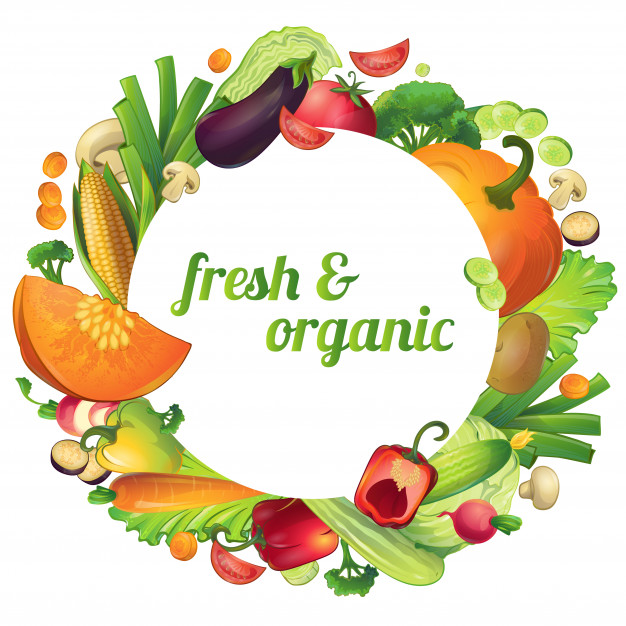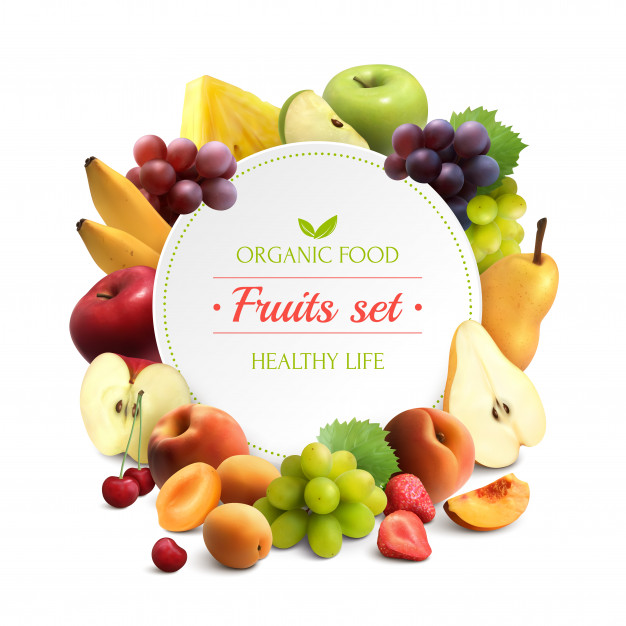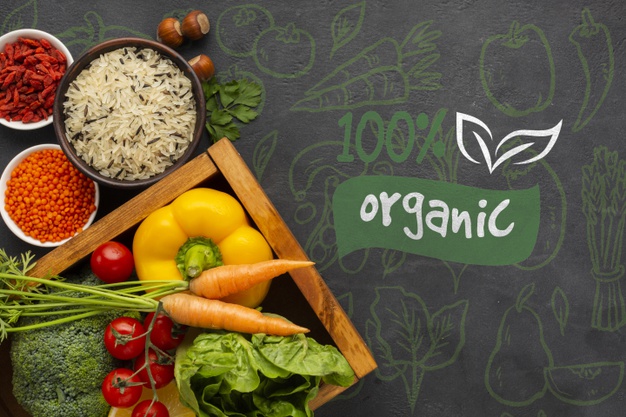Organic foods are referred as those foods, which have grown without using synthetic chemicals. These foods are extremely nutritious and tasty and its consumption is awfully beneficial for obtaining a good health status.
Difference between the term organic and natural
- The term organic and natural is not interchangeable
- The term natural food means that the food does not contain any artificial flavor or color or preservatives
- Whereas the term organic food means that the food grows without using any chemicals or pesticides and it does not contain any genetically modified organisms too

Characteristics of organic food
It contains more antioxidant
- Organic food is comparatively rich in some nutrients than conventional food
- It has seen that organic food contains relatively higher amount of phytonutrients especially flavonoids, which exert potent antioxidant activity thus it is believed that organic food provides more antioxidant than other foods
- Being a rich source of antioxidant, consumption of organic food is very much helpful for preventing oxidative stress. It helps to protect the body from the harmful effects of free radicals thus decreases the susceptibility of developing chronic diseases
- We know that micronutrients especially vitamins, minerals and various organic compounds are responsible for exhibiting antioxidant activity and organic food plays important role in promoting the positive impact of antioxidant activity because it does not contain any chemicals, which can reduce the impact of antioxidant activity by reacting with micronutrients that are accountable for exerting antioxidant activity

It has better taste
- Organic food tastes better because organic food is given more time to mature and develop
- Using of environmental friendly as well as natural technique of agricultural production is considered as the main factor responsible for providing better taste to organic food
It is poison free
- As organic food is processed without using any chemical fertilizers or chemical pesticides thus it does not contain any toxic elements and may not affect the health adversely
- We know that consumption of chemical pesticides is closely related with increasing the risk of developing various diseases like digestive disorders, cancers, headache, attention deficit hyperactivity disorder or ADHD, poor immunological responses, poor cognition, vision loss and even premature death also. As organic farming does not involve the use of any artificial growth hormone, herbicides, thus organic food is absolutely free from health harming chemical substances
It is not genetically modified
- Generally organic food is not genetically engineered in nature that means it does not contain any genetically modified organisms. Genetically modified organisms are referred as those living organisms in which the DNA is altered in such a way, which does not occurred naturally
- It has seen that prolong consumption of genetically modified food may cause various health hazards like allergic reactions, cancers, antibiotic resistance and immune suppression thus consumption of food, which is free from genetically modified organisms like organic food is considered as a healthier choice

Environment friendly
- It contains lesser amount of toxic metals
- As we know that organic farming does not use agrichemicals thus it reduces the consumption of toxic metals
- Cadmium is considered as one of the most harmful toxic metals and its toxicity is responsible for developing various life threatening health complications and it has seen that organic food contains about 48% lesser amount of cadmium than conventional crops
Health benefits
Role on immunity
- It plays vital role in improving the immunological responses of the body
- Organic food contains comparatively higher amount of vitamins, minerals and phytonutrients that ultimately help to strengthen the overall immunity
- It is also associated with preventing the risk of declining immune potency because it is totally free from toxic elements that may harm the immune system
- We know that humans are susceptible for developing various diseases and thus they have to take several preventive measures like consuming antibiotic drugs or vaccination for becoming healthy
- In the same way, non organic food sources use growth hormone, antibiotics, and vaccines for animals. When humans consume those non organic animal products then they also consume all of those vaccines or antibiotics or growth hormones indirectly, which ultimately weaken the immune system that make humans unable to defend themselves against diseases
- Thus it is better to focus on organic animal foods as their production process does not use any vaccine, growth hormones or antibiotics

Anti-carcinogenic activity
- Consumption of organic food is closely associated with reducing the risk of developing cancers as it plays imperative role in protecting the body from the harmful effects of carcinogens
- It has seen that consumption of organic food is very effective for decreasing the prevalence of breast cancer and non-Hodgkin lymphoma

Role on decreasing the prevalence of food borne illness
- Food borne illness is defined as a disease that is generally caused by consuming foods, which are contaminated by virus or bacteria or parasites or toxins. It is responsible for developing various health complications like diarrhoea, nausea, vomiting, stomach cramp, dehydration, fever, fatigue etc.
- Even animals are also fed on various drugs or chemical products for enhancing their productivity and consumption of such animal products may develop detrimental drug-resistant infections in humans
- Consumption of organic food is considered as one of the most important remedial actions for preventing the outbreak of food borne illness
Role on cardiac health
- Consumption of organic food especially organic meat and milk is extremely helpful for improving cardiac health as they contain adequate amount of conjugated linoleic acid or CLA
- CLA is considered as a cardio friendly fatty acid that helps to improve cardiac functionality and also decreases the prevalence of cardio vascular diseases
- Micronutrient contents of organic meat and milk also play imperative role in promoting cardiac health and aid in maintaining normal blood pressure and heart beat as well
- Whereas consumption of organic fruits and vegetables are also beneficial as they contain comparatively higher amount of flavonoids that help to protect the heart from oxidative damages
- It has seen that individuals who consume organic foods have lesser risk of experiencing heart attacks or strokes than others

Providing more nutrients
- Organic food products like organic milk, organic meat, organic fish, organic poultry, organic fruits, organic vegetables etc, all products are highly nutritious as they contain comparatively more nutrients than other conventional foods because they do not contain any modified ingredients
- Another cause of nutritional enrichment of organic foods, is that they are provided with most suitable conditions for growth and they also provided proper time for development
- It has seen that organic milk, meat, poultry and fish contain relatively higher amount of proteins and the proteins present in these organic food sources are of good biological value
- Organic foods also contain higher amount of omega 3 fatty acids than other foods thus it is believed that consumption of organic foods are extremely beneficial for promoting cardiac health
- Organic fruits and vegetables contains comparatively higher level of micronutrients as well

General consideration of using organic food
- It is better to purchase organic foods especially fruits and vegetables in season for obtaining the freshest products
- It is better to read the food label carefully before purchasing organic foods
- Proper washing of foods before cooking is essential

Source:
Baudry, J., Assmann, K.E., Touvier, M., Allès, B., Seconda, L., Latino-Martel, P., Ezzedine, K., Galan, P., Hercberg, S., Lairon, D. and Kesse-Guyot, E., 2018. Association of frequency of organic food consumption with cancer risk: Findings from the NutriNet-Santé prospective cohort study. JAMA internal medicine, 178(12), pp.1597-1606.
Chekima, B., Igau, A., Wafa, S.A.W.S.K. and Chekima, K., 2017. Narrowing the gap: Factors driving organic food consumption. Journal of Cleaner Production, 166, pp.1438-1447.
Crinnion, W.J., 2010. Organic foods contain higher levels of certain nutrients, lower levels of pesticides, and may provide health benefits for the consumer. Alternative Medicine Review, 15(1).
Forman, J. and Silverstein, J., 2012. Organic foods: health and environmental advantages and disadvantages. Pediatrics, 130(5), pp.e1406-e1415.
Gracia, A. and de Magistris, T., 2008. The demand for organic foods in the South of Italy: A discrete choice model. Food Policy, 33(5), pp.386-396.
Vega‐Zamora, M., Torres‐Ruiz, F.J., Murgado‐Armenteros, E.M. and Parras‐Rosa, M., 2014. Organic as a heuristic cue: What Spanish consumers mean by organic foods. Psychology & Marketing, 31(5), pp.349-359.









